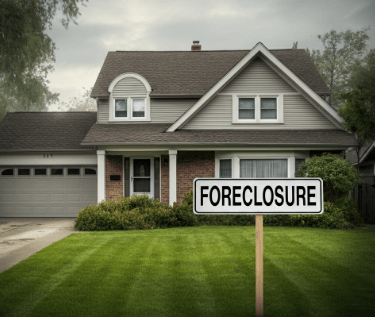Did you know that Florida has one of the fastest foreclosure processes in the United States, with most cases typically completing within 180 to 365 days? If you’re facing financial difficulties in Port St. Lucie, understanding how long it takes to foreclose on a house in Port St. Lucie, FL, can help you make informed decisions about your property before it’s too late. According to recent data from the Florida Courts, St. Lucie County processed over 1,200 foreclosure cases in 2024, with an average timeline of 6 to 12 months from initial filing to final sale. The foreclosure process can feel overwhelming, especially when you’re unsure about your timeline and options for keeping your home or selling it quickly. Many homeowners are unaware of alternatives that can help them avoid foreclosure entirely and protect their credit score. Steve Daria and Joleigh, renowned real estate investors and cash house buyers, have helped hundreds of Port St. Lucie families navigate these challenging situations by providing fast, fair cash offers that can close before foreclosure proceedings begin. Understanding exactly how long it takes to foreclose on a house in Port St. Lucie, FL, empowers you to take action and explore all available options. Don’t wait until it’s too late. Schedule a free consultation with our experts today to learn how to sell your house quickly and protect your financial future from the impact of foreclosure.
What is foreclosure, and how does it work in Florida?
Foreclosure is a legal process in which a lender takes back a property when the homeowner is unable to make their mortgage payments.
In Florida, this process occurs through the court system, which requires a judge to approve every foreclosure case before it can proceed.
The process starts when you miss several mortgage payments, usually after being 90 days or more behind on your loan.
Your lender will first send you notices and try to work out a payment plan, but if that doesn’t work, they’ll file a lawsuit against you in court.

Once the lawsuit is filed, you’ll receive official papers called a “lis pendens” that tell you about the foreclosure case.
You then have 20 days to respond to the court if you wish to contest the foreclosure or negotiate a settlement with your lender.
The entire process involves several court hearings, review of paperwork, and legal steps that must be completed in sequence.
Understanding how long it takes to foreclose on a house in Port St. Lucie, FL, can help homeowners plan their next steps, as the typical timeline ranges from six months to over a year, depending on various factors, such as court schedules and whether the homeowner contests the action.
Get An Offer Today, Sell In A Matter Of Days
How long does the foreclosure process take in Port St. Lucie, Florida?
The foreclosure process in Port St. Lucie, Florida, typically takes between six months and one year from start to finish, though the exact timeline can vary based on several factors.
Understanding how long it takes to foreclose on a house in Port St. Lucie, FL, helps homeowners plan their next steps and explore available options before it’s too late.
The process begins when you fall behind on mortgage payments, usually after missing three consecutive monthly payments or being 90 days past due.
Your lender will then file a lawsuit in the St. Lucie County court system, which starts the official foreclosure proceedings.
Once you receive the court papers, known as a lis pendens, you have 20 days to respond if you wish to contest the foreclosure or negotiate with your lender.
If the case goes uncontested, the process moves more quickly through the court system, often completing in six to eight months.
However, if you fight the foreclosure or encounter complications with the paperwork, the timeline can extend to 12 months or longer.
Court schedules, attorney responses, and whether you qualify for loss mitigation programs can all impact the final timeline for your specific situation.
How much time do I have after receiving a foreclosure notice in Port St. Lucie, Florida?
- 20 Days to Respond to the Lawsuit: Once you receive the lis pendens (the official foreclosure lawsuit), you have exactly 20 days to file a written response with the court. If you miss this deadline, the court may automatically rule against you, which can expedite the entire foreclosure process.
- 3-6 Months for the Court Process: The foreclosure case will move through the court system over several months, with hearings and document reviews. During this time, you can still negotiate with your lender, apply for loan modifications, or explore other options to save your home.
- 30-90 Days for Loan Modification Reviews: Lenders usually take 30-90 days to review loan modification or loss mitigation applications. Most lenders will pause the foreclosure proceedings while they consider your request for help.
- 20-35 Days Between Final Judgment and Sale: After the court issues a final judgment against you, the foreclosure sale will be scheduled 20-35 days later. This is your final window to sell the house yourself or work out a last-minute deal with your lender.
- Until the Auction Begins: You can still take action to save your home right up until the foreclosure auction actually starts at the courthouse. Having cash buyers lined up or working with experienced attorneys can make these last-minute solutions possible.

Can bankruptcy prevent foreclosure and impact the timeline in Florida?
Yes, bankruptcy can temporarily stop foreclosure proceedings in Florida by creating what is known as an “automatic stay.”
This stay puts a hold on all collection activities, including foreclosure, as soon as you file for bankruptcy.
Chapter 13 bankruptcy helps homeowners keep their homes by allowing a 3-5 year plan to repay missed mortgage payments.
With Chapter 7 bankruptcy, the delay is much shorter, usually only stalling foreclosure for about 3-4 months, since you are not making plans to repay the debt.
Understanding how long it takes to foreclose on a house in Port St. Lucie, FL, is important if you are considering bankruptcy because timing your filing can give you more time to explore solutions.
The automatic stay protects you while your bankruptcy case is active, but lenders can ask the court to lift it if you continue to miss payments.
A skilled bankruptcy lawyer can help you choose the right chapter and timing for your situation.
At what point in the foreclosure timeline should I consider selling my house in Port St. Lucie, Florida?
- As Soon as You Miss Three Mortgage Payments: The best time to sell is before your lender files the foreclosure lawsuit, typically after you’re 90 days behind on payments. At this stage, you have the most negotiating power and time to find the right buyer for your property.
- Within 20 Days of Receiving Court Papers: Once you get the lis pendens (foreclosure lawsuit), you still have good options for selling your house. This gives you several months to market the property while the court case moves through the system.
- Before Final Judgment is Entered: Selling before the court issues final judgment means you avoid additional legal fees and court costs. You typically have 6-8 months from the initial filing to reach this point in uncontested cases.
- Between Final Judgment and Sale Date: Even after final judgment, you have 20-35 days before the foreclosure sale is scheduled. Quick cash sales are still possible during this critical window.
- Up Until Auction Day: You can literally sell your house on the morning of the foreclosure auction before it begins. Having cash buyers ready makes these last-minute sales not only possible but also profitable.
How quickly can I sell my house to avoid foreclosure in Port St. Lucie, Florida?
You can often sell your house in just 7-14 days when working with cash buyers, making it the fastest way to avoid foreclosure in Port St. Lucie, Florida.
A traditional real estate sale typically takes 30-60 days, but this timeline may not be sufficient if a foreclosure sale is already scheduled.
Knowing how long it takes to foreclose on a house in Port St. Lucie, FL, is crucial, as you may only have a few weeks or months, depending on your specific situation.
Cash buyers work quickly because they don’t require appraisals, bank financing, or long inspections that often create delays.
Even if the official foreclosure sale is set within the next month, experienced investors can step in and close before the auction with good planning.
It’s crucial to act promptly and connect with buyers who have experience handling foreclosure cases and have the necessary cash to close.
In urgent cases, a deal can be finalized in just 3-5 days if all the required documents are ready.
Steve Daria and Joleigh are expert real estate investors and cash house buyers dedicated to helping homeowners.
Reach out today to get a cash offer and close the deal quickly, even before your planned sale date.
Takeaway
- The Average Process Takes 6-12 Months: Most foreclosures take between six months and a year from start to finish. This depends on whether you contest the case or if the court has a backlog.
- You Have 20 Days to Respond: After getting a lis pendens (foreclosure notice), you must respond to the court within 20 days. If you don’t, the court may quickly rule against you.
- Bankruptcy May Delay the Process: Filing for bankruptcy creates an automatic stop to foreclosure. This delay could last several months or longer, depending on your case.
- Loan Modifications Provide a Pause: Requesting a loan modification can temporarily halt foreclosure. Reviews typically last between 60 and 120 days.
- Selling Is Possible Up to Auction: You can sell your house up until the foreclosure auction begins. Quick sales are an effective last-minute option.
**NOTICE: Please note that the content presented in this post is intended solely for informational and educational purposes. It should not be construed as legal or financial advice or relied upon as a replacement for consultation with a qualified attorney or CPA. For specific guidance on legal or financial matters, readers are encouraged to seek professional assistance from an attorney, CPA, or other appropriate professional regarding the subject matter.

